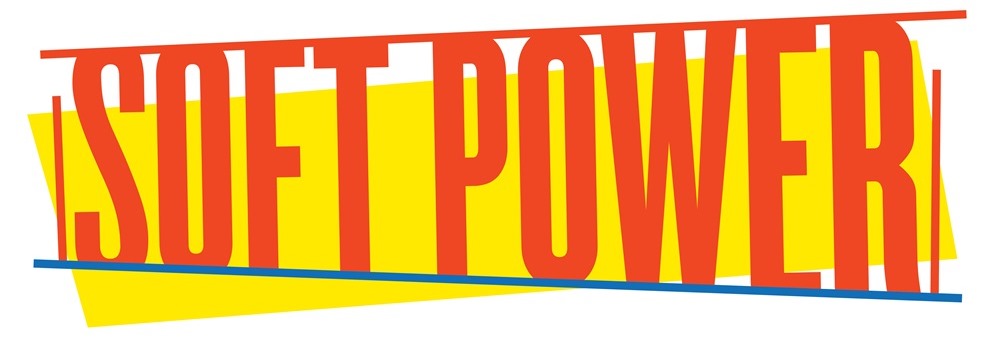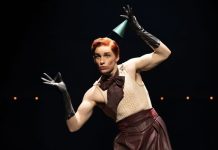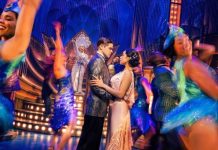On November 29, 2015, Tony Award-winning playwright David Henry Hwang (M Butterfly) survived a potentially fatal knife attack to his neck on the street near his home in Brooklyn. That unprovoked (and still unsolved) assault – classified by investigators as a possible hate crime – provided the basis for the riotous and revelatory Soft Power, a provocative new absurdist musical-within-a-play, with book and lyrics by Hwang, and music and additional lyrics by fellow Tony recipient Jeanine Tesori (Fun Home), now making its New York debut at The Public Theater.
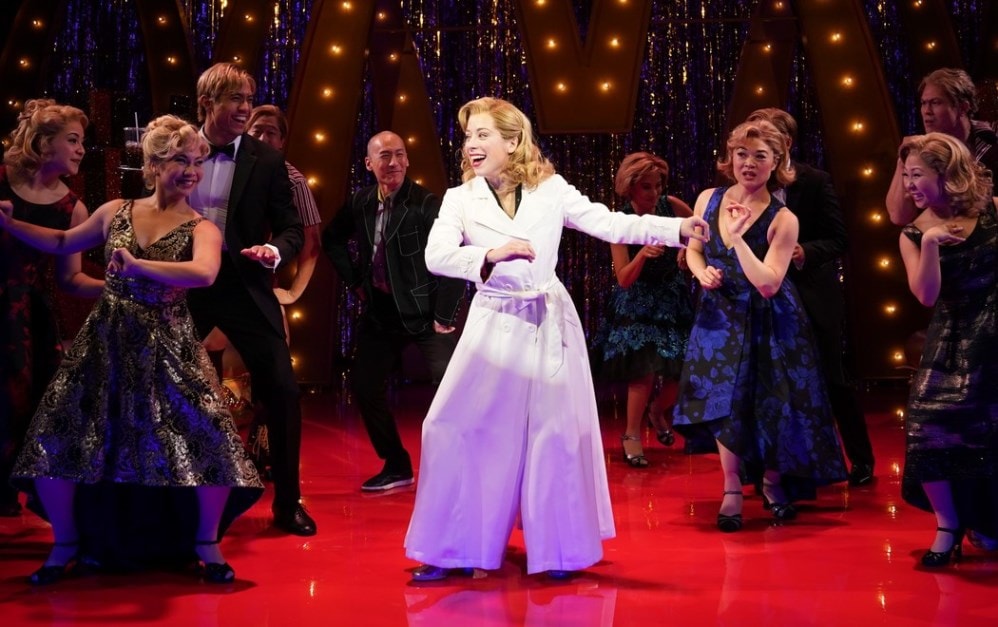
Framed in the context of an over-the-top autobiographical fever dream that his character experiences while unconscious in the hospital following the brutal slashing, the inventive and intriguing show explores the conflicting politics, cultures, philosophies, and values of the US and China, as seen through the lens of a new American-style musical Hwang is commissioned to write for Xūe Xíng, a producer from Shanghai who forms a special relationship with 2016 presidential candidate Hillary Clinton. Sound wild? It is; wildly entertaining and insightful, and non-violently persuasive (per the titular “soft power”).
Directed with full-out zaniness by Leigh Silverman, a high-energy cast of fourteen, led by Francis Jue as DHH, Conrad Ricamora as Xūe, and Alyse Alan Louis as Hillary, lampoons everything from famous American musicals of the stage and screen to fast-food eateries, the obsessive love of cats and selfies, and rampant gun-toting and jingoism. The sidesplitting parody is bursting with sharp-witted socio-political commentary, farcical scenes populated by laughable stereotypes, and an amusingly astute portrayal of the opposing perspectives of East and West. It also includes meta-theatrical scenes in which a questioning DHH directly addresses the audience with his ideas and concerns, and one in which a panel of Asian experts (and a token white scholar), 50 years in the future, analyzes the meaning of his fictional musical production, in subtle recognition of political correctness masked as equality.
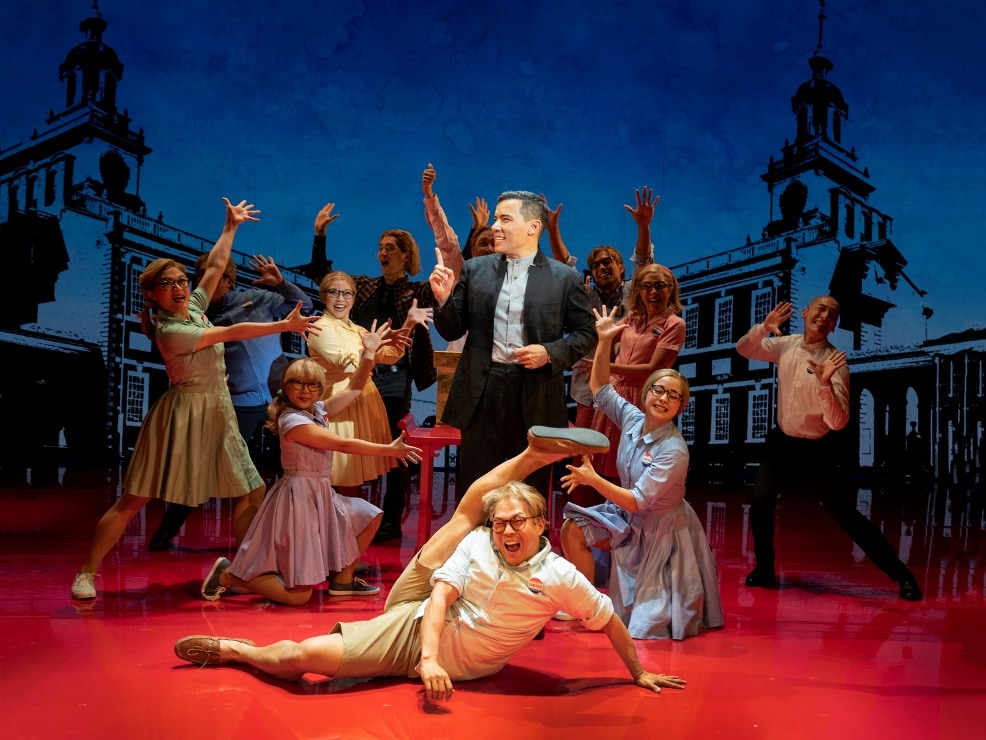
Sam Pinkleton’s vibrant choreography provides spot-on spoofs of dance styles from the Golden Age of Broadway and Old Hollywood to current hip-hop, referencing (and culturally reversing) The King and I, Fred Astaire and Ginger Rogers, Saturday Night Fever, Oklahoma, In the Heights, and more (even Hwang’s conceit of a fever dream seems to be a nod to Dorothy’s colorful fantasy of Oz after being knocked unconscious in a tornado) – all well-executed by the indefatigable ensemble and in perfect harmony with Tesori’s genre-encompassing music. Among the most uproarious highlights is an overblown song-and-dance production number set in a glitzy McDonald’s (scenic design by Clint Ramos; lighting by Mark Barton), with over-sized boxes of French fries covered in gold glitter, servers in scanty uniforms on roller skates, and customers donning tuxedos, cocktail dresses, and blond wigs (costumes by Anita Yavich; hair, wig, and make-up design by Tom Watson) in a biting critique of American taste and aesthetics.
The terrific lead performances by Ricamora, Jue, and Louis (whose powerhouse voice nails the blockbuster songs) effectively capture the distinct backgrounds, beliefs, and demeanors of their respective Asian, Asian-American, and white-American characters, in portrayals that are filled with sardonic humor, but also account for their culture-specific emotions and psychology. And a standout in the across-the-board funny and spirited supporting roles is Austin Ku as Bobby Bob, who comes to the rescue when needed.
Along with all the laugh-out-loud satire and risible stereotypes, Soft Power promotes the serious message that our ideas of each other’s countries are not always 100% accurate (as seen in the characters’ excitement over their view of New York’s famous “Golden Gate Bridge”) and that our system of democracy might not be everything we’d like it to be (explaining the results of the 2016 election, in which the POTUS lost the popular vote but won the electoral college). It also offers the extended metaphor that a combination of China’s dutiful “face” and America’s passionate “heart” could be the peaceful solution to the antipathy between the two cultures, as promoted here through the “soft power” of the theater. It’s worth a try. And it’s definitely worth seeing this hard-hitting hilarious show.
Running Time: Approximately two hours, including an intermission.
